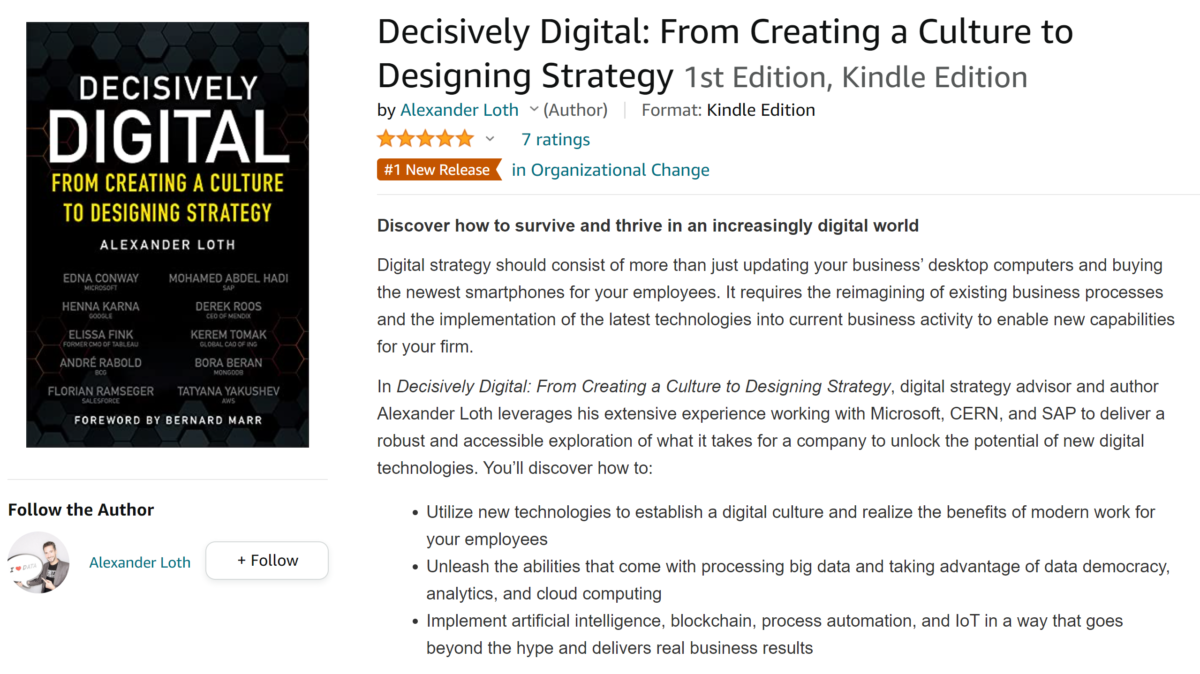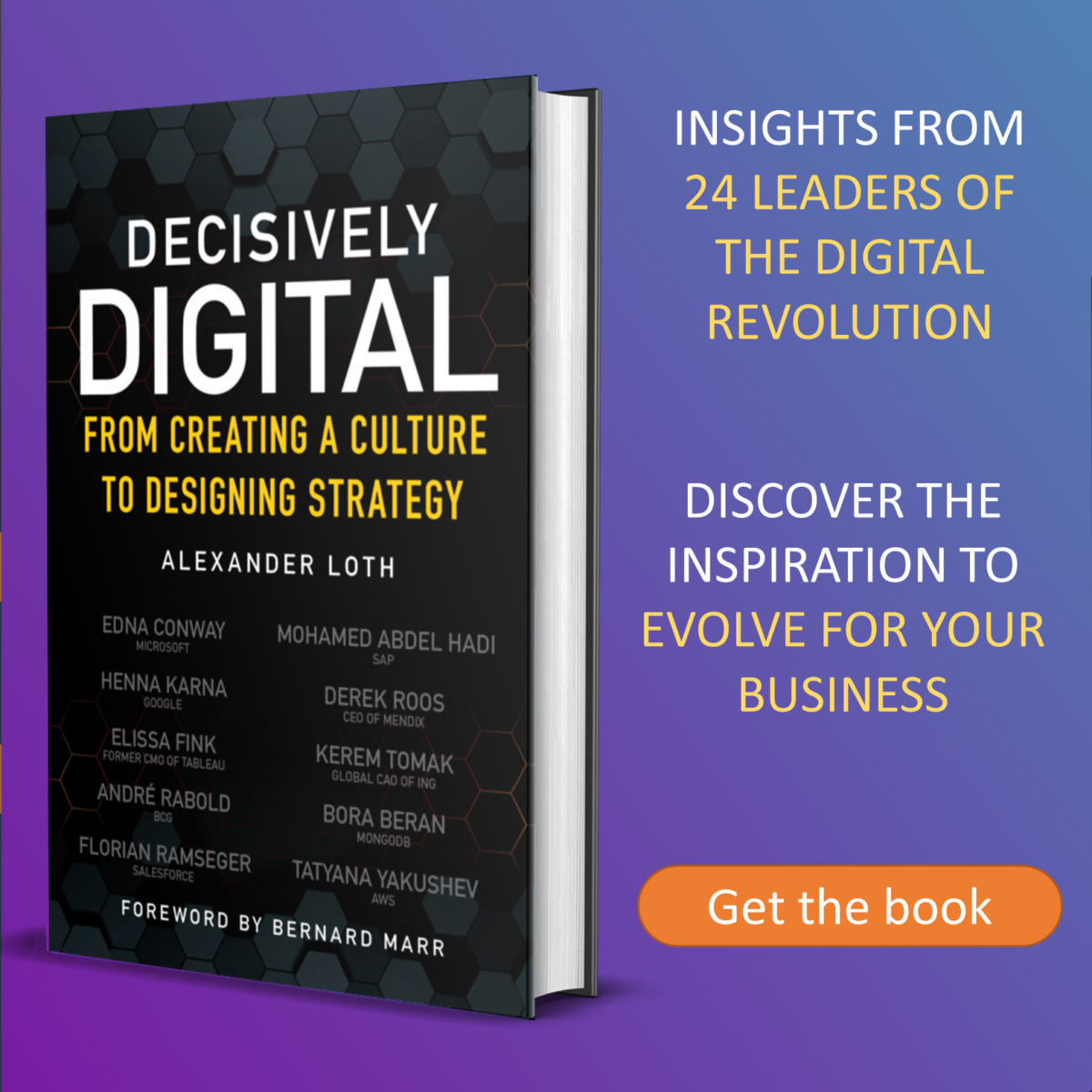Tag: Machine Learning
-

Decisively Digital is the #1 New Release in Organizational Change on Amazon
Our book Decisively Digital is the number 1 new release in Organizational Change on Amazon! The paperback of Decisively Digital became available yesterday in the US, with other territories soon to follow. Decisively Digital companion website Announcement on LinkedIn Amazon product page It took a village to finish this book. Many thanks to all of you:
-

Decisively Digital — From Creating a Culture to Designing Strategy: Book is Now Available
My new book Decisively Digital — From Creating a Culture to Designing Strategy is now available for pre-order at most bookstores. The ebook is already available: Book’s website | Amazon | Barnes & Noble | Books A Million | IndieBound | Thalia | published by Wiley Check out 24 gripping interviews with Elissa Fink, Mohamed Abdel Hadi, Dr. Henna Karna, Derek Roos, Edna Conway, Kerem Tomak, André Rabold, Bora Beran, Florian Ramseger, Tatyana Yakushev, Patrick…
-
10 Use Cases for AI in Healthcare as part of your Digital Strategy
Good health is a fundamental need for all of us. Hence, it’s no surprise that the total market size of healthcare is huge. Developed countries typically spend between 9% and 14% of their total GDP on healthcare. The digital transformation in the healthcare sector is still in its early stages. A prominent example is the…
-
Machine Learning kompakt: Alles, was Sie wissen müssen
Nachdem ich bereits Erfahrung als Buchautor (hier und hier) gesammelt habe, hatte ich kürzlich die Gelegenheit als Technical Reviewer ein sehr spannendes Buchprojekt zu unterstützen. Das Buch Machine Learning kompakt: Alles, was Sie wissen müssen, geschrieben von Andriy Burkov, fand ich dabei dermaßen interessant, dass ich es gerne im Folgenden kurz vorstellen werde: Machine Learning…
-
Tableau: How to find the most important variables for determining Sales
During the Q&A session of a recent talk on Data Strategy, I was challenged with a rather technical question: I was asked how to identify the variables that are heavily influencing a certain measure – with an interactive solution that matches a modern data strategy as suggested in my presentation. Of course, this could be done by executing…
